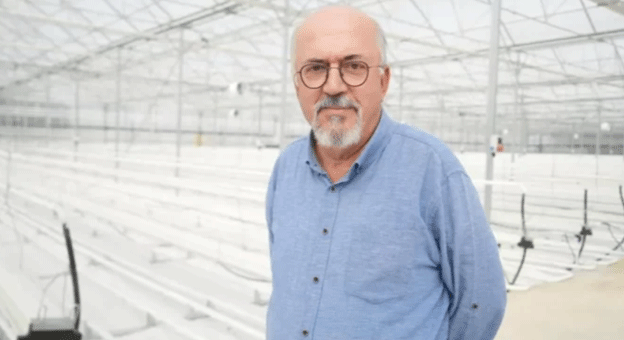Agriculture is at a turning point, and Niğde, a province in Central Anatolia, is at the forefront of combining renewable energy with innovative farming techniques. A new project, located in the Narlıgöl region, aims to use geothermal energy to heat a 40-decare greenhouse for soilless tomato production. This initiative, supported by the Niğde Governorship and Provincial Special Administration, is set to revolutionize local agriculture by reducing water usage, lowering carbon emissions, and creating sustainable employment.
Local Resources for Global Challenges
The project’s coordinator, Prof. Dr. Mehmet Şener, highlights that the use of geothermal energy aligns with global trends of reducing carbon footprints and optimizing natural resources. “With food crises looming worldwide, the smart use of local, renewable resources is crucial,” says Şener. “Geothermal energy is a perfect example of how we can achieve this.” Niğde, with its high geothermal potential, has been identified as a key location for this endeavor. The geothermal water in Narlıgöl reaches 60°C, making it ideal for heating greenhouses.
By utilizing geothermal heat, the facility can grow tomatoes without soil, a method known as hydroponics. This modern agricultural technique not only reduces the need for arable land but also limits water consumption—critical in a region prone to water scarcity. According to current research, hydroponics can reduce water usage by up to 90% compared to traditional soil farming, a vital feature as climate change exacerbates water shortages globally.
Empowering Local Communities
In addition to its environmental benefits, the project aims to foster economic growth in the region. Once operational, it will employ 100 local workers, including 60 women trained in soilless farming. Niğde Ömer Halisdemir University’s Technopark is leading the development of automation systems and software to ensure the operation runs efficiently. “Our goal is to bring modern, scientific agriculture techniques to Niğde, making the region a leader in geothermal-powered farming,” says Şener.
Untapped Geothermal Potential
Turkey ranks among the top three countries globally in terms of geothermal potential. While regions like Narlıgöl and Çiftehan in Niğde are well known, Prof. Dr. Şener reveals that several other potential geothermal sites have been identified, with ongoing research and development aimed at harnessing these resources. “We are sitting on one of Turkey’s hottest spots,” he says, referring to the fact that at 2,000 meters below the surface, temperatures can reach up to 300°C.
A Sustainable Future for Agriculture
This project represents a significant step forward in the fight against climate change. The use of geothermal energy, a renewable and low-carbon resource, will dramatically reduce the carbon footprint of the agricultural sector. The tomatoes grown in this innovative system are not only meant for domestic consumption but are also planned for export, contributing to Turkey’s agricultural economy.
Niğde’s geothermal tomato project serves as a model of how local resources, cutting-edge technology, and sustainable practices can come together to address some of the most pressing global challenges in agriculture. With its success, it is expected to inspire similar initiatives across the country and beyond.
The geothermal tomato project in Niğde demonstrates the powerful role renewable energy can play in transforming agriculture. By combining geothermal heat, soilless farming, and automation, this initiative promises to increase food production while reducing environmental impact. As Turkey continues to explore its geothermal potential, projects like this one offer hope for a more sustainable and resilient agricultural future.












